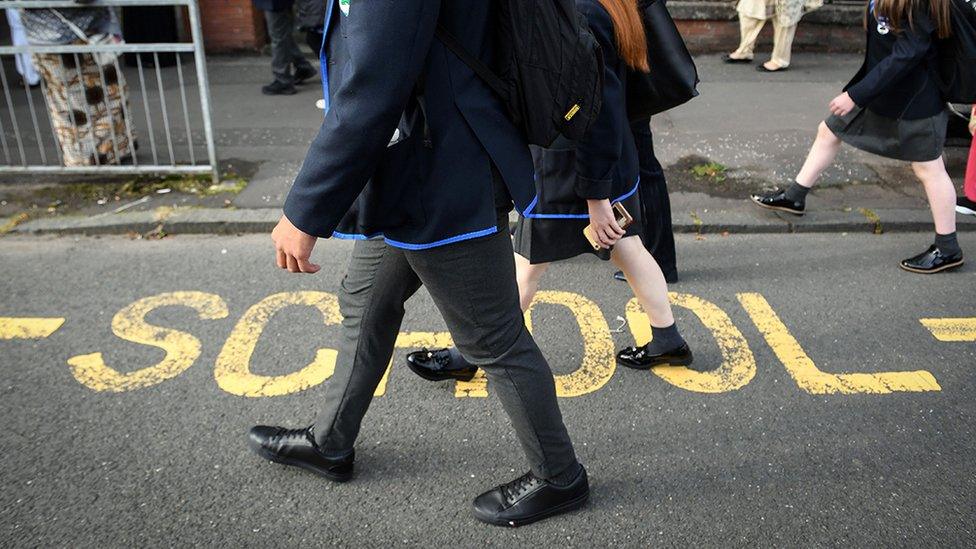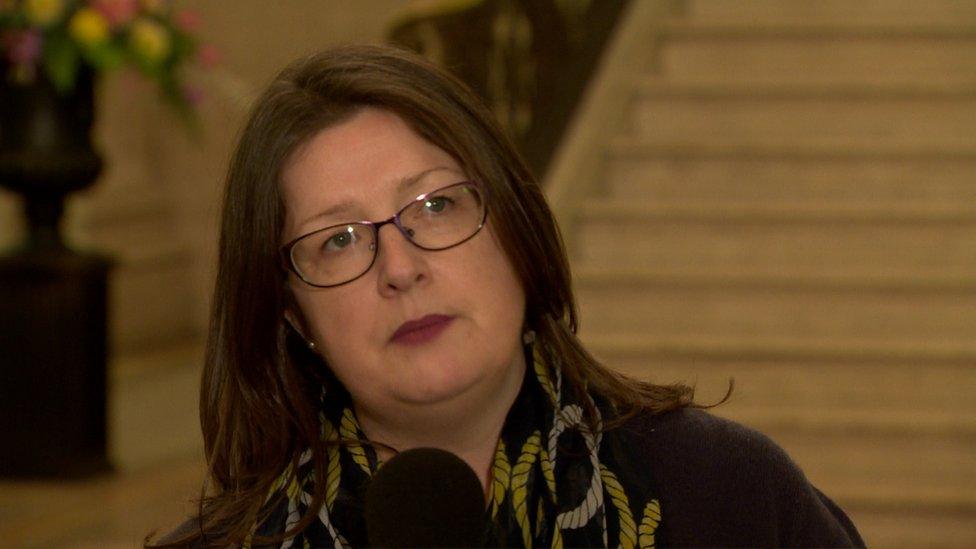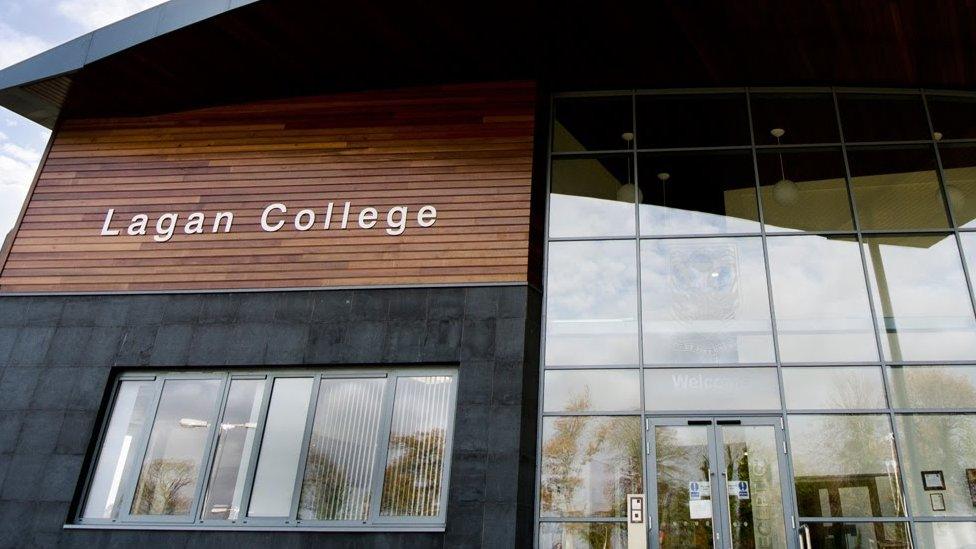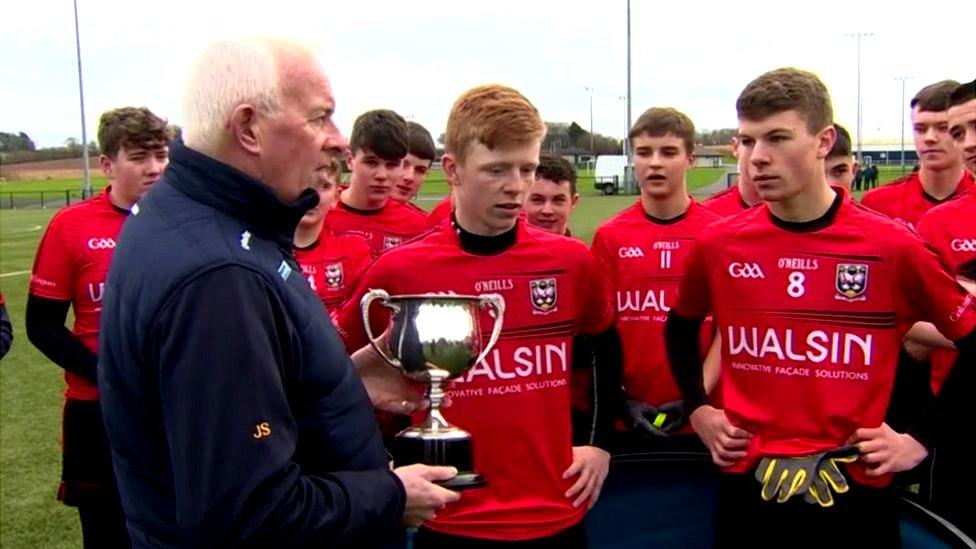Integrated education bill 'not fit for purpose', say churches
- Published

The bill would lead to the promotion, reform and expansion of integrated education
Bodies representing many schools and the four main churches have called a proposed Integrated Education Bill "flawed" and "not fit for purpose".
It has been brought by Alliance Party MLA Kellie Armstrong, and has provoked both strong opposition and support.
The DUP has previously said it will raise a petition of concern to try to veto the bill.
However, that has to be supported by 30 assembly members, more than the total number of DUP assembly members.
Ms Armstrong's bill would lead to the promotion, reform and expansion of integrated education.
It would increase the number of integrated school places and set targets for the number of children being educated in integrated schools.

Alliance's Kellie Armstrong proposed the bill
Currently, about 7% of pupils in Northern Ireland are educated in just under 70 formally integrated schools, which aim to mix pupils from Protestant, Catholic and other backgrounds.
But some non-integrated schools also have a mix of pupils from different religious backgrounds and those who are not religious.
The head of Northern Ireland's oldest integrated school, Lagan College, has said Ms Armstrong's bill would "provide genuine and much-needed choice" for parents.
A number of political parties have also said they will vote to support it.
However, some other schools have written to parents claiming it would "elevate integrated schools" above other types of school.
Those concerns have been echoed in an open letter by five bodies that represent many schools and the four main churches.
The bodies said they would be "failing the children and young people of Northern Ireland if we did not share our significant concerns about the impact" of the bill.
"The legal and financial implications of this bill need to be understood by all elected representatives and taken seriously," the letter said.
"The issue is neither integrated education nor integrated schools.
"We believe this flawed legislation is not fit for purpose and will educationally disadvantage over 90% of children and young people."
The Department of Education (DE) and Education Authority (EA) had also previously raised concerns about the bill in evidence to Stormont's Education Committee.
The open letter has been signed by the chief executives of the Council for Catholic Maintained Schools (CCMS), the Controlled Schools Support Council (CSSC) and the Governing Bodies Association (GBA), which represents voluntary grammar schools.
It has also been signed by the Catholic Schools' Trustee Service (CSTS) and the Transferor Representatives Council (TRC), which jointly represents the Presbyterian, Church of Ireland and Methodist churches in education.
Their letter said that the bill would prioritise "one group of schools above all others".
"Those expressing concerns about the unintended damaging outcomes of the flawed legislation have been characterised as self-interested and standing in the way of progress," they said.
"That view is as inaccurate as it is unfair.
"We question what funding will be available, given the scale of investment required for the enactment of this bill: investment which will have to be directed to one sector."
The letter concluded by saying the five bodies could not support the bill but would continue to work together to ensure pupils achieved their full potential.
MLAs are due to vote on the final stage of the bill at Stormont next Wednesday.
Related topics
- Published17 February 2022

- Published8 July 2021

- Published8 December 2021
